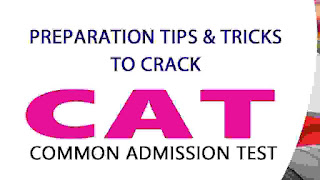Employability Skills List
Good Job Skills
Employability Skill Improvement to Grab
A Good Job in Future
In this article we are going to share some basic employability skills list with
you readers to grab a good job in future.
Everyone of us should know about these basic employability skills
before getting ready for a professional careers. Looking ahead at 2019 and beyond,
is not just about jobs and careers of
the future, but more about how we should prepare ourselves for what could
be a completely different world 10 years hence! Ten years ago, Facebook didn’t exist, nor did WhatsApp!
Ten years before that, we didn’t have the Web. Yet today everyone is on a
roller coaster speeding ahead to a world where nothing is predictable, nor
impossible. But what is apparent is that good
job skills won’t disappear — they will be re-defined, requiring new skill list.
The idea that you get an education when you're young and then you stop and you
go and work for 40 or 50 years with that educational training and that’s over
for sure now. All of us are going to have to continue to adapt, get new employability skills, and possibly go
back for different types of training and credentials.
Moreover, the skills set needed for jobs in the
future are changing along with the advancing technology and the digital world. In fact, soft skills like communication,
problem-solving, collaboration and empathy are becoming as much valued as tech
savviness. In such a world, how do we prepare ourselves for the jobs of the
unknown future ? We can do that by focusing today's learning towards employability skills required for an
evolving and super charged tomorrow:
Social
Skills – Communication
It isn't enough just doing engineering, or some
technical course, the better technology gets, the more people will have to
focus on their "human skills" to survive in the workforce. As
computers get more intelligent, the work that will take over will require human
skills like leadership, motivation and emotional intelligence. In fact overall
social skills such as persuasion, and teaching others will be in demand across
industries, as will cognitive abilities, such as creativity and mathematical
reasoning, communication and complex problem solving capabilities.
Equally
important is Social Intelligence : The ability to connect with others in a deep
and direct way to sense and stimulate reactions and desired interactions ;
Cross cultural competence - the ability to operate in different cultural
settings; and trans- disciplnary intelligence - literacy in and ability to
understand concepts across multiple disciplines.
Technology
skills:
Starting with solid technology skills,
essential for every student — Digital literacy skills. The digital
transformation impacts every industry, and being able to befriend the “machine”
is one of the most critical of skills. Just knowing programming languages is
not enough. Even today the maximum jobs being lost are in the IT services
sector, where applications are being moved to the cloud, and the focus is on
machine learning, Internet of Things (IoT) and data analytics. The ability to
embrace technology and machines is about the ability to get stuff done, about
knowing the tools and how to use them. They also involve using social media,
working with design or video editing software and knowing programming
languages. Some skills that could be useful in a future technology-driven
world:
■
Artificial Intelligence & Machine
Learning:
AI is becoming essential for acquiring, storing, transferring and managing the
huge amounts of data produced today. AI and machine learning scientists can
work within a variety of settings, including private companies, technology
companies, production and manufacturing, healthcare, transportation, customer
service, finance, construction, government agencies and defence.
■
Coding : An increasing number of businesses are
relying on computer code, particularly those involving Information Technology,
Data Analysis, design, engineering and pure science.
■
Digital Marketing: More and more
companies are moving their marketing into the digital space for greater reach
and access to the needs of customers, their usage of websites and search
engines and to optimize online marketing initiatives.
■
Design thinking: Accelerated rates of
technological and social change will require more workers to focus on problem
finding and problem framing, rather than simply problem solving. Design
thinking introduces methods of problem finding and problem framing in the
pursuit of emergent innovation. Some ways to develop or improve your technology
skills include:
■
Take up a short or online course in the IT skills you wish to develop
■
Find out what technology will be used in the job you want and how it's used
■
Take up extra training at work
Tips
to boost Basic employability Skills
■
Learn a new language - bilingual employees have a definite advantage in today's
global world.
■Whenever
possible, participate in college activities and be a part of the organising
committee for college events. These initiatives will teach you values of team
work, leadership skills, communication skills and will go a long way in
preparing you for the future.
■
Take up a summer internship while you are still studying so that you get
hands-on experience of the workings of an industry. This will be taken into
account by your hiring manager and will give you an edge over other candidates.
■
It is vital to keep an open mind and keep learning, throughout your career.
Maintain a lifelong learning outlook. It will certainly help improve your
employability.
Critical
thinking & complex problem-solving Although we strongly rely on automated
technology for some parts of our work, there are some things a computer just
cannot do, such as make executive decisions for us. The Information Age
requires a brand-new set of skills involving statistics, probability,
cost-benefit analysis, principles of cognitive psychology, logic and
dialectical reasoning. You need these skills to be able to constantly analyze
various situations, consider multiple solutions and make decisions through
logic and reasoning.
Problem-solving is a skill we should all
possess but as the world advances, we'll be faced with even more difficulties
than ever before. In order to find solutions to these problems, you need to
have the mental flexibility and proficiency of thinking outside the box, to see
the bigger picture and come up with solutions and responses. It involves being
able to use a logical process to figure things out. Start expanding your brain
power and tackling a few issues that have been lingering, and you'll be fully
prepared for the future.
Some ways
to develop adaptability/Employability skills: Start in small ways like changing your
route to work, saying 'yes' to something you might normally say 'no' to
automatically, or trying a different and unfamiliar food Look for opportunities
to try new things that will keep you learning- learn a new skill, make new
friends, try a new type of food, take the initiative for starting something new
in your college, community. Whenever you encounter a new challenge, make a
quick list of some of the potential ways you could solve the problem.
Experiment with different strategies and focus on developing a logical way to
work through common problems Undertake exercises that encourage you to work out
several COAs (Courses of action) for hypothetical challenging situations. Every
one should have a Good Job skill to
satisfy his/her role in the organization. So every one should work on these basic Employability Skills to increase their
job scope.





